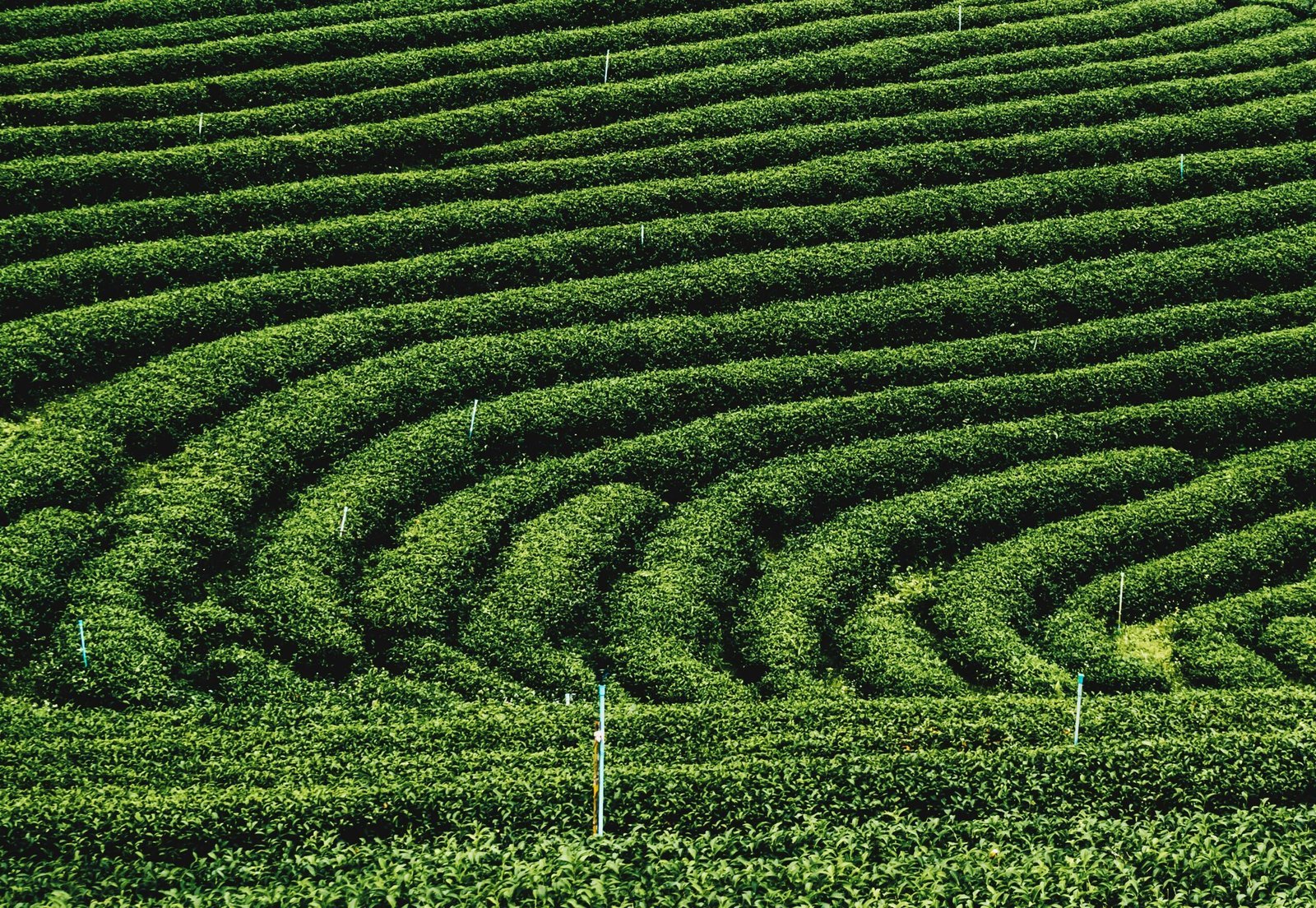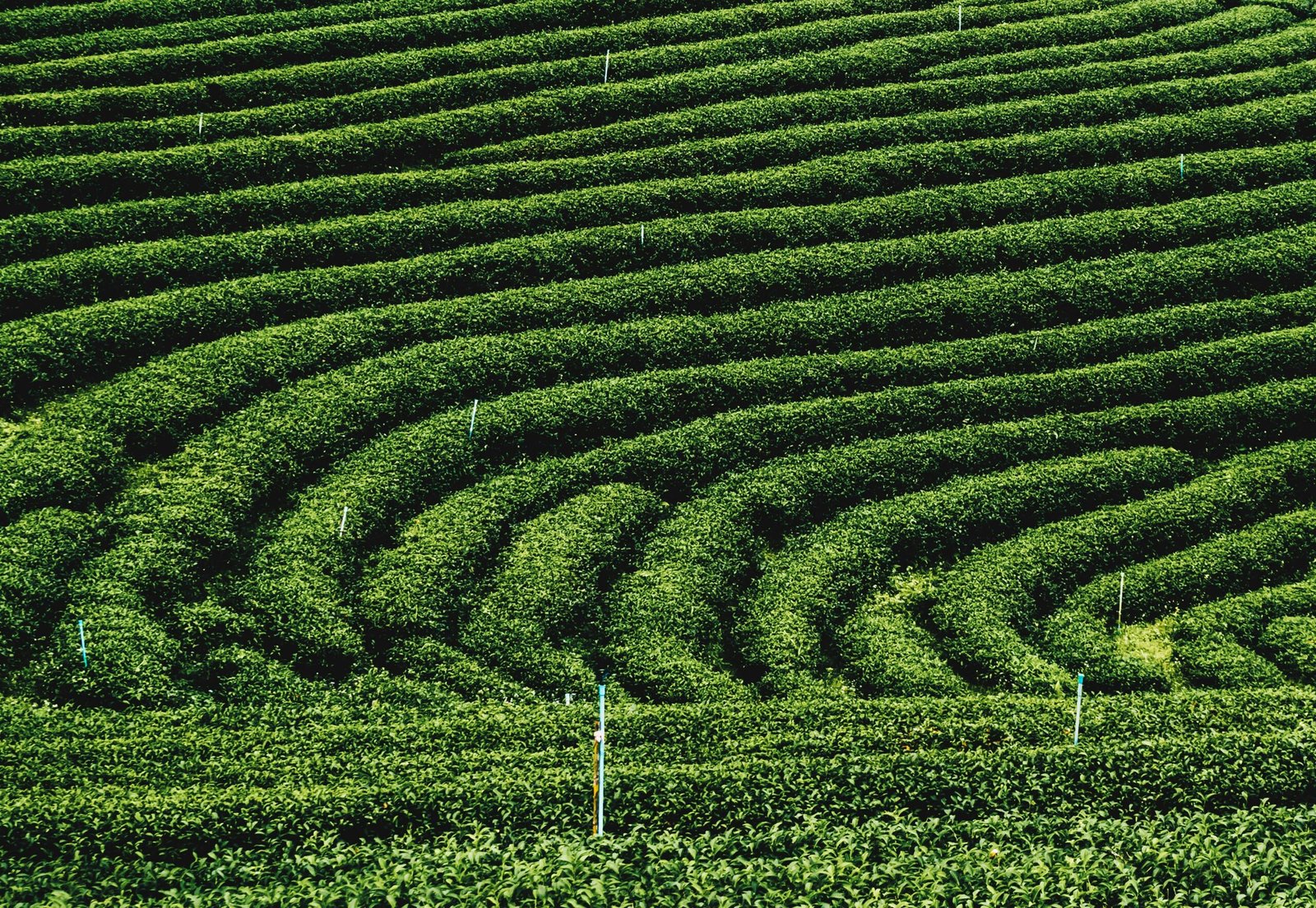
Introduction to Zhushan, Nantou
Zhushan, a tranquil township nestled in Nantou County, Taiwan, offers a serene respite with its idyllic landscapes and rich cultural tapestry. Nestled amidst the central part of Taiwan, Zhushan stands out as a premier destination for those seeking to immerse themselves in the quintessential beauty of the Taiwanese countryside. This region benefits from a temperate climate, characterized by mild winters and warm summers, creating an ideal environment for tea cultivation. It is of no surprise that Zhushan is renowned for its expansive tea plantations, which not only shape the local economy but also play a pivotal role in Taiwan’s tea production.
Strategically located within convenient travel distance from major urban centers, Zhushan provides an accessible yet secluded retreat for both residents and visitors. The township’s unique geographical setting, encased by a series of verdant rolling hills and undulating terrains, contributes to its breathtaking scenery. Such diverse topography—from low plains to elevated hillocks—affords visitors various vantage points to appreciate the stunning panoramas of the countryside.
Moreover, the moderate altitude and fertile soil conditions prevalent in Zhushan are key factors that further its reputation in tea cultivation. These natural attributes, combined with traditional farming techniques honed over generations, result in some of the highest quality teas that Taiwan has to offer. Beyond tea, the township’s countryside also features an array of other agricultural activities, contributing to its rustic charm and diversified agricultural landscape.
Zhushan’s significance stretches beyond its agricultural products; it embodies a quiet blend of cultural heritage and scenic elegance. Through its serene tea gardens, quaint village paths, and abundant natural beauty, Zhushan stands as a testament to Taiwan’s rich rural legacy. This introduction aims to set the stage for a deeper exploration of the tea plantations and countryside views that make Zhushan a must-visit destination for nature lovers and tea enthusiasts alike.
The Rich History of Tea Cultivation in Zhushan
Zhushan, a township located in Nantou County, Taiwan, boasts a rich history of tea cultivation that dates back several centuries. The art of tea farming was introduced to this fertile region during the Qing Dynasty. Early settlers discovered that the unique climate and soil conditions of Zhushan were optimal for tea cultivation. The lush hillsides provided an ideal environment for growing a variety of high-quality teas. As a result, tea quickly became the lifeblood of the local economy, shaping both the cultural landscape and the daily lives of its residents.
Over the years, Zhushan has produced an impressive array of teas, among which oolong, black tea, and green tea are the most notable. Each type of tea reflects the meticulous care and time-honored techniques that have been passed down through generations. In particular, the slow, deliberate process of hand-picking tea leaves ensures that only the finest leaves are selected, maintaining the superior quality that Zhushan tea is known for. These traditional methods, despite advancements in technology, remain largely unchanged, paying homage to the rich legacy of the township’s tea farmers.
Culturally, tea in Zhushan is more than just a commodity; it is an integral part of the community’s identity. Tea ceremonies and festivals are common, showcasing the deep-rooted reverence for this cherished crop. These events offer a glimpse into the spiritual and communal values that have been intertwined with tea cultivation through the ages. Visitors are often left in awe of the seamless blend of tradition and everyday life, as locals engage in practices that honor their ancestors while embracing the future.
The preservation of traditional farming techniques in Zhushan is not merely an act of nostalgia but a testament to the community’s commitment to quality and sustainability. By maintaining these age-old practices, Zhushan ensures that its tea plantations are not only a source of livelihood but also a living museum of cultural heritage. The history of tea cultivation in Zhushan is a narrative of resilience, dedication, and an unbreakable bond between the people and their land.
Varieties of Tea Grown in Zhushan
Zhushan, a scenic township in Taiwan’s Nantou County, is celebrated for its diverse range of high-quality teas. Among the most notable varieties cultivated in this region are Oolong, Green Tea, and Black Tea, each distinguished by its unique flavors, aromas, and growing conditions.
Oolong tea, often referred to as Wulong tea, holds a special place in Zhushan’s tea production. This semi-oxidized tea, which resides somewhere between Green and Black Tea in terms of oxidation levels, offers a complex flavor profile that combines the freshness of Green Tea with the rich, deep notes of Black Tea. The unique microclimate of Zhushan, characterized by its misty mornings and cool evenings, provides an ideal environment for Oolong tea plants. The leaves are hand-picked and subject to meticulous processing steps such as withering, rolling, and firing to achieve the tea’s distinct floral and fruity nuances.
Green Tea, another prominent variety grown in Zhushan, is known for its minimal oxidation and delicate, fresh taste. This tea is prized for its health benefits, including high levels of antioxidants and a lower caffeine content compared to other teas. The production of Green Tea in Zhushan involves a careful balance of technology and tradition. Farmers employ both modern machinery and time-honored techniques to quickly steam or pan-fry the leaves, locking in their verdant color and fresh flavor.
Black Tea, or Hong Cha, in Zhushan is renowned for its fully oxidized leaves, offering a robust and malty flavor. The high elevation and fertile soil of Zhushan enhance the richness of Black Tea, making it highly sought after in both domestic and international markets. The leaves are allowed to fully oxidize before being dried, resulting in a dark, amber-colored brew that boasts a strong, aromatic profile.
Each variety of tea from Zhushan not only represents a unique blend of flavors and aromas but also reflects the region’s dedication to quality and tradition. The distinctive growing conditions, combined with the expert craftsmanship of local tea farmers, ensure that Zhushan’s teas maintain a prominent place in the global tea market.
A Day in the Life of a Tea Farmer
In the heart of Zhushan, nestled among the rolling hills and verdant expanses, lies the tireless world of the tea farmer. A typical day begins at dawn, as the soft light of the morning sun graces the tea plantations. Farmers rise early, invigorated by the tranquility of the countryside, to start their day by picking the finest tea leaves. The calm of the early hours is perfect for handpicking, which ensures that only the most tender leaves make the cut, preserving the quality that Zhushan tea is known for.
As the day progresses, activity shifts to the processing facilities where newly harvested tea leaves undergo meticulous treatment. Mid-day is often marked by the rhythmic sounds of machines and the gentle rustle of leaves being processed. This stage is crucial as it involves withering, rolling, fermenting, and drying – each process carefully monitored to retain the tea’s unique flavor and aroma. Farmers, with their generations-old expertise, oversee these steps with keen eyes and experienced hands, ensuring that the essence of Zhushan’s renowned tea is never compromised.
Evening brings a serene conclusion to the day’s laborious activities. Farmers gather to share meals, recount the day’s happenings, and prepare for the next day’s toil. This time is also reserved for age-old rituals, such as evening tea tastings, where farmers indulge in the fruits of their labor, appreciating the intricate notes and nuances of their own produce. These gatherings are steeped in tradition, offering a sense of community and unity among the tea farmers of Zhushan.
Personal stories from local farmers add depth to this narrative. For instance, Mr. Lin, a third-generation tea farmer, speaks of the pride and responsibility that come with preserving family traditions. His anecdotes of learning the craft from his grandfather highlight the cultural significance of tea farming in this region. Such reflections bring to life the daily rhythm of a tea farmer in Zhushan, illustrating a blend of hard work, tradition, and passion that defines their day-to-day existence.
The Scenic Countryside: Beyond the Tea Fields
Zhushan in Nantou is not only famed for its tea plantations but also offers an array of breathtaking countryside views that captivate nature enthusiasts. The region’s scenic landscapes are adorned with rolling hills, lush bamboo forests, and crystal-clear streams, creating an idyllic setting for exploration and relaxation.
The rolling hills of Zhushan are a spectacle to behold, offering panoramic views that stretch as far as the eye can see. These verdant expanses are particularly exquisite during sunrise and sunset, when the interplay of light and shadows paints a mesmerizing picture on the natural canvas. Visitors are often encouraged to hike the numerous trails that meander through these hills, where each bend reveals a new and stunning vista.
Bamboo forests are another defining feature of Zhushan’s countryside. These forests, with their towering bamboo stalks swaying gently in the breeze, provide a serene atmosphere reminiscent of a fairy tale. Walking through these groves, one is enveloped in a sense of tranquility that is hard to find elsewhere. The Bamboo Forest Trail is highly recommended for those wishing to immerse themselves in this unique ecosystem.
Crystal-clear streams thread their way through the Zhushan countryside, adding to its charm. These pristine waters, often bordered by wildflowers and native vegetation, are perfect for a refreshing pause during a hike. The Puzih River, with its clean, invigorating waters, is a popular spot for nature lovers to relax and enjoy the natural beauty that the area offers.
For those seeking the best viewpoints, the Zhushan Skywalk is a must-visit. This elevated walkway offers unobstructed views of the surrounding landscapes, providing a comprehensive look at both the tea fields and the diverse countryside. Another notable viewpoint is the Mt. Zhuzi Hiking Trail viewpoint, which offers a stunning panorama of the valleys and hills, perfect for photography enthusiasts.
In conclusion, while Zhushan’s tea plantations are undoubtedly a significant draw, the surrounding countryside also offers an abundance of natural beauty that is not to be missed. Whether you are a hiker, a photographer, or simply someone seeking peace amidst nature, Zhushan’s scenic landscapes provide an unforgettable experience.
Local Tea Houses and Tastings
Zhushan, nestled in the heart of Nantou County, is a treasure trove for tea enthusiasts. The region’s tea houses provide an immersive gateway to understanding and enjoying the local tea culture. Visitors are afforded the opportunity to visit renowned tea houses where rich traditions and modern comforts converge, offering an authentic tea tasting experience.
One highly recommended tea house is the Zhushan Tea Garden. This establishment stands out not only for its picturesque setting but also for its commitment to preserving the art of tea making. Here, guests can participate in guided tea tastings, learning to differentiate between various grades and types of teas. The knowledgeable staff educates visitors on the intricate brewing techniques that bring out the nuanced flavors of their offerings, particularly the locally-famous oolong and green teas.
The Ming Tian Tea House is another must-visit location for tea aficionados. Set against the lush backdrop of Zhushan’s rolling hills, this tea house is known for its extensive selection of high-quality teas. Patrons can engage in personalized tasting sessions, where they are taken through a sensory journey to appreciate the distinct aroma, flavor, and color of each tea variety. Additionally, Ming Tian Tea House offers workshops on traditional tea ceremonies, enriching visitors’ understanding of the cultural significance of tea in the region.
For those interested in taking home a piece of their experience, many tea houses in Zhushan, including the aforementioned ones, offer premium teas for purchase. These teas, cultivated and harvested in the local plantations, make for an exquisite souvenir or a thoughtful gift. Moreover, visitors can often find beautifully crafted teapots and other tea accessories, which enhance the overall tea drinking experience and serve as cherished mementos of their visit.
In sum, Zhushan’s tea houses provide not just a taste but a comprehensive appreciation of the local tea culture. They blend the educational with the enjoyable, ensuring that every visitor leaves with a deeper understanding and a cherished memory of their tea journey in Nantou.
Cultural Festivals and Events
Zhushan, Nantou, is a region deeply rooted in tea cultivation, and its rich cultural heritage is brought to life through various festivals and events. These celebrations not only highlight the significance of tea in the local community but also provide an immersive experience for visitors, allowing them to indulge in the traditional customs and practices associated with tea.
One of the most notable events is the annual Zhushan Tea Festival. This festival typically occurs in the spring and is a grand celebration of the tea harvest. It features an array of activities, including tea-tasting sessions, tea-picking demonstrations, and educational workshops on tea processing and brewing techniques. Local tea masters and enthusiasts gather to share their knowledge, making it an ideal opportunity for visitors to learn about the intricate art of tea-making.
Another significant event is the Tea Harvest Celebration, which takes place during the peak harvest season. This event allows participants to experience the hands-on process of picking tea leaves and understanding the labor-intensive efforts that go into producing high-quality tea. The celebration is often accompanied by traditional music and dance performances, providing a festive atmosphere that resonates with both locals and tourists.
In addition to these tea-focused events, Zhushan is also home to various cultural festivals that showcase the region’s diverse traditions. The Lantern Festival, for example, is a vibrant event where the streets are adorned with beautifully crafted lanterns, and the night sky is illuminated with a stunning display of lights. Traditional Taiwanese music and dance performances are a highlight, offering a glimpse into the cultural richness of the area.
Food enthusiasts will also find delight in the local culinary events that frequently accompany these festivals. Visitors can savor an array of traditional dishes, many of which incorporate tea as a key ingredient, emphasizing the integral role of tea in the local cuisine. These events serve as a platform for cultural exchange, allowing visitors to engage with the local people and gain a deeper appreciation for Zhushan’s heritage.
Practical Travel Tips for Visiting Zhushan
Nestled in the heart of Taiwan, Zhushan offers an idyllic escape that promises breathtaking tea plantations and serene countryside views. For those planning a visit to this picturesque location, here are some practical travel tips to ensure a memorable and seamless experience.
Best Time to Visit
The optimal time to visit Zhushan is during spring (March to May) and autumn (September to November). These seasons offer mild temperatures and minimal rainfall, ideal for exploring the verdant landscapes and tea fields. Notably, springtime also allows visitors to witness the blossoming of flowers, which enhances the natural beauty of Zhushan’s countryside.
Getting There
Travelers can reach Zhushan by taking a high-speed train to Taichung, followed by a local bus or taxi ride to the town. For those preferring to drive, renting a car provides flexibility and an opportunity to enjoy scenic routes. Public transportation is efficient, but renting a vehicle can be particularly advantageous for exploring the more remote and picturesque areas.
Accommodation Options
Zhushan offers a range of accommodation options, from traditional guesthouses and homestays to modern hotels. For an authentic experience, consider staying in a homestay where you can immerse yourself in local culture and hospitality. Book your accommodation in advance, especially during peak seasons, to ensure availability and the best rates.
Travel Etiquette
Respecting local customs and traditions enhances your travel experience. When visiting tea plantations or interacting with local farmers, greet them with a smile and show appreciation for their hard work. Remember to adhere to any posted guidelines and seek permission before taking photographs of individuals or private property.
Sustainable Tourism
Sustainable tourism is vital in preserving Nantou’s pristine landscapes. Support local farmers by purchasing locally-produced tea and other products. Reduce waste by carrying reusable water bottles and bags. Additionally, adhere to the principles of Leave No Trace by cleaning up after yourself and minimizing environmental impact.
With these practical tips, your journey to Zhushan can be both enjoyable and responsible, ensuring that the beauty and charm of this destination are preserved for future travelers.

